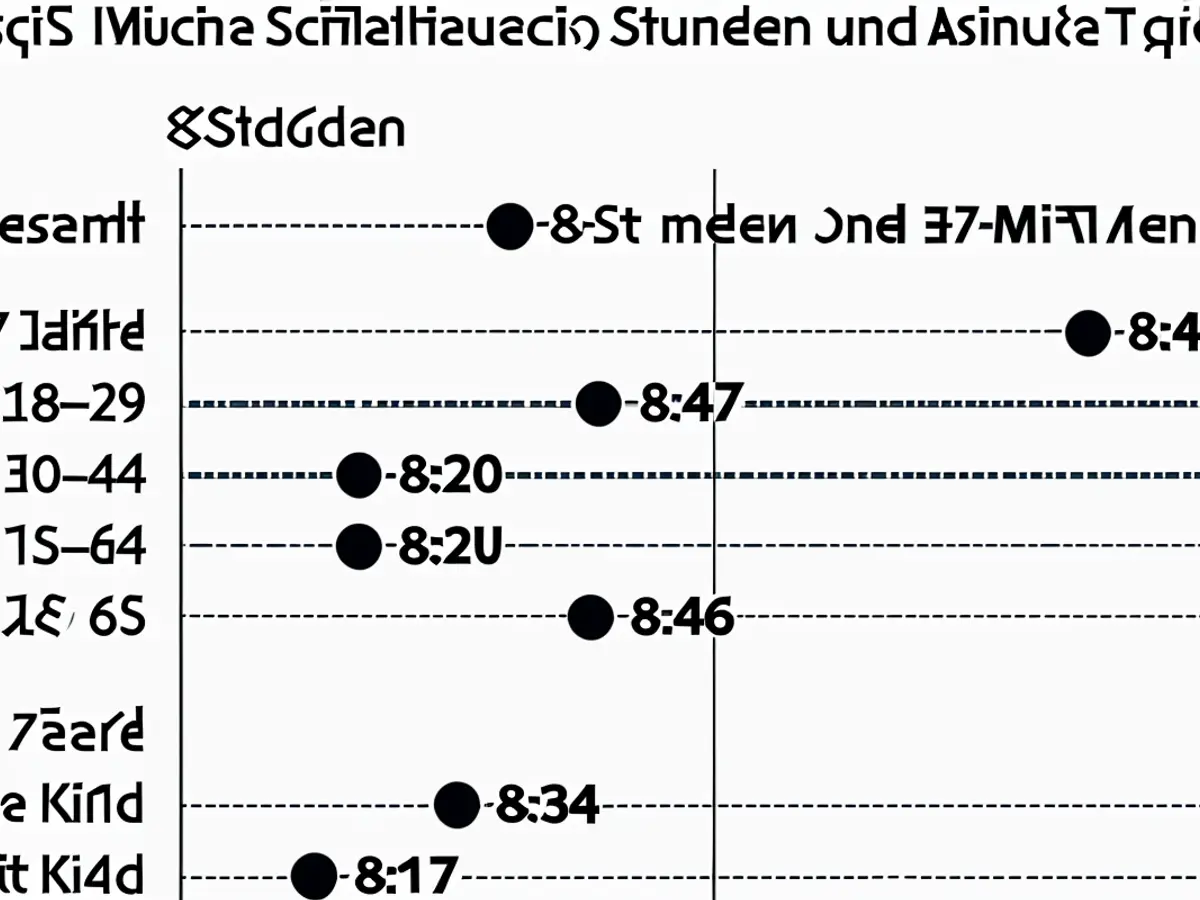In Germany, what is the usual sleep duration for individuals?
The Federal Statistical Office analyzes slumber patterns via the "Time Use Survey". Insights include: Which age brackets snooze the longest, sleep patterns among families with kids, and overall changes in sleep duration compared to a decade ago. New findings are now public.
Data shows that households with children record less shut-eye, averaging 8 hours and 15 minutes - a difference of 19 minutes compared to those without offspring, as per the FSO's findings from the 2022 Time Use Survey. Single parents, too, logged 8 hours and 22 minutes fewer Z's compared to their childless counterparts, although the gap is only 10 minutes here.
As per the numbers, overall sleep duration has increased since a decade ago, with the average duration being 8 hours and 37 minutes for folks aged 10 and over. This is an 8-minute improvement from the 2012/2013 survey results. All age groups noted an increase in sleep duration, but the survey is silent on whether the Coronavirus pandemic played a role in these changes.
Weekend sleep hours outpace weekday ones: The survey shows an average 9 hours and 15 minutes of sleep during holidays and weekends, contrasting the 8 hours and 20 minutes clocked during the week.
Retirement-age folks enjoy longer sleep
What about differences in sleep duration across age groups? "According to the 2022 data, youngsters under 18 years old catnap the longest, averaging 9 hours and 42 minutes", the statisticians noted. The 18-to-29-year-olds, on the other hand, snooze approximately an hour less daily (8 hours, 47 minutes).
People aged 30 to 64 sleep an average of 8 hours and 20 minutes, which is nearly half an hour less for this age group. Seniors (65 years and over) get the most rest, logging an average of 8 hours and 46 minutes.
The FSO released these findings to coincide with Germany's National Sleep Day on June 21, celebrated by the German Society for Sleep Research and Sleep Medicine.

Read also:
- The Federal Statistical Office's analysis of sleep patterns also includes statistics on sleep disorders, revealing that the prevalence of sleep disorders is higher among parents compared to individuals without children.
- When considering the impact of education on sleep, individuals with higher levels of education tend to sleep more, with the average sleep duration increasing by 5 minutes for each additional year of schooling, as reported by the Federal Statistical Office.
- To promote better sleep hygiene and awareness, various organizations in Germany, including the Federal Statistical Office, suggest implementing sleep education programs in schools to inform students about the importance of proper sleep, statistics on sleep duration, and strategies to improve sleep quality.







